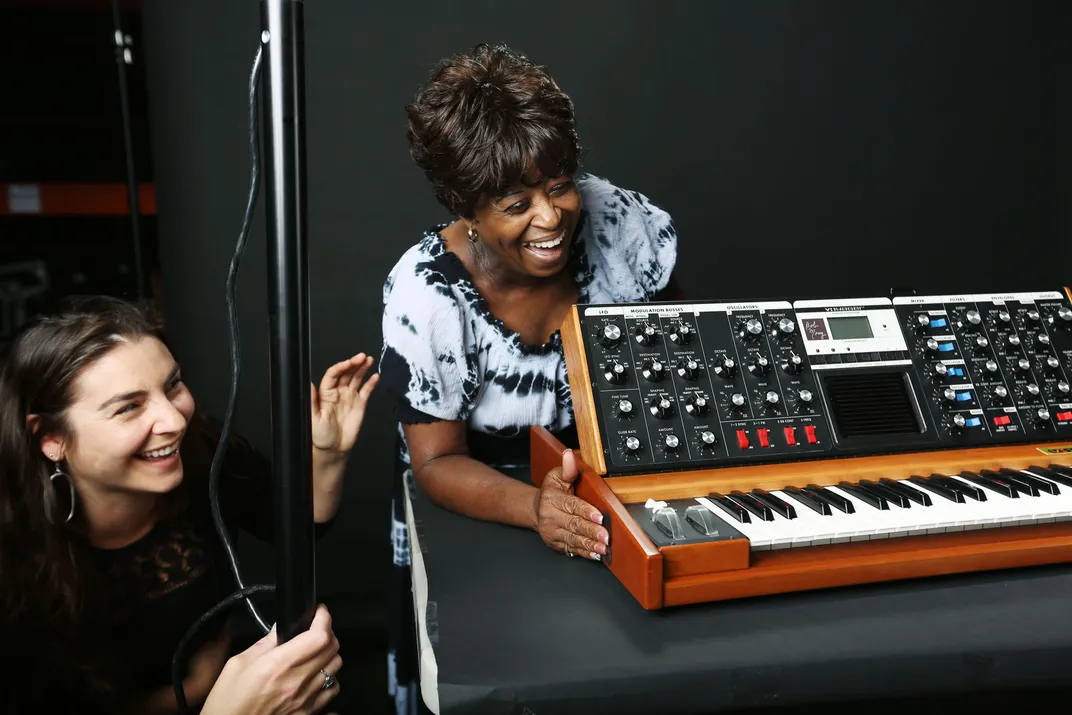The Legacy of Hip-Hop Producer J Dilla Will Be Recognized
The late producer’s mother announced she is donating his synthesizer and beat machine to the African American History Museum
/https://tf-cmsv2-smithsonianmag-media.s3.amazonaws.com/filer/85/69/8569498c-d2db-40ce-9895-9050b102886e/yancey-06.jpg)
Before J Dilla learned to walk, he was already dancing to James Brown. By his third birthday, he was a fan of Michael Jackson. He grew up to become an influential hip-hop and neo-soul producer, until his death in 2006 at the age of 32. Now, thanks to a donation from his mother, his objects will appear alongside those of his childhood icons at the National Museum of African American History and Culture.
Maureen Yancey, J Dilla’s mother announced the donation last week at the annual D.C. Loves Dilla concert in Washington. The decision to donate her son’s Moog synthesizer and MPC beat machine followed years of conversations she had with Smithsonian’s popular-music historian, Timothy Burnside. They first met at a previous D.C. Loves Dilla concert. Yancey invited the historian to her home in Detroit, and during several visits, they sipped iced tea and discussed how to preserve J Dilla’s legacy. That same house was where Erykah Badu, A Tribe Called Quest, and Common all came to record. “He worked with absolutely everybody,” Burnside says. “Getting a Dilla beat was a big deal.”
/https://tf-cmsv2-smithsonianmag-media.s3.amazonaws.com/filer/3d/d0/3dd08016-39d9-464a-9cc1-bb9e2fb9df19/image.jpeg)
Yancey decided to donate after seeing plans for the NMAAHC museum, set to open in 2016. J Dilla’s synthesizer and beat machine will appear in the inaugural exhibition “Musical Crossroads.” J Dilla will be one of the most contemporary musicians represented.
“I’ve mourned Dilla and really have just come out of mourning last year,” Yancey says. “My whole life, everything about me just got shattered.” This donation is helping her move forward. “I feel like if I’ve ever done anything right in this world, one thing was having Dilla and the next thing is giving these things to the Smithsonian,” she says. “Right now my sun is shining every day.”
Few objects were as meaningful to J Dilla as the ones donated. “He used it in probably everything he was making,” says J. Rocc, a close friend and DJ, about the synthesizer, which Moog built custom for J Dilla. “That thing was used nonstop and he was so proud of it.”
And when J Dilla became hospitalized in Los Angeles with lupus, one of the essential items he asked his mother to ship to him from Detroit was the MPC. It was with him on his deathbed, making beats until the end. “That’s the core piece to his production,” Burnside says. “It’s like the iconic thing that everybody associates him with.”
How would J Dilla react to hearing about his inclusion in the exhibition? “He would laugh,” J. Rocc says. “He wouldn’t even believe you. He’d be like, ‘Why are you lying to me?’ It’s amazing.”

/https://tf-cmsv2-smithsonianmag-media.s3.amazonaws.com/accounts/headshot/MAx2.jpg)
/https://tf-cmsv2-smithsonianmag-media.s3.amazonaws.com/accounts/headshot/MAx2.jpg)